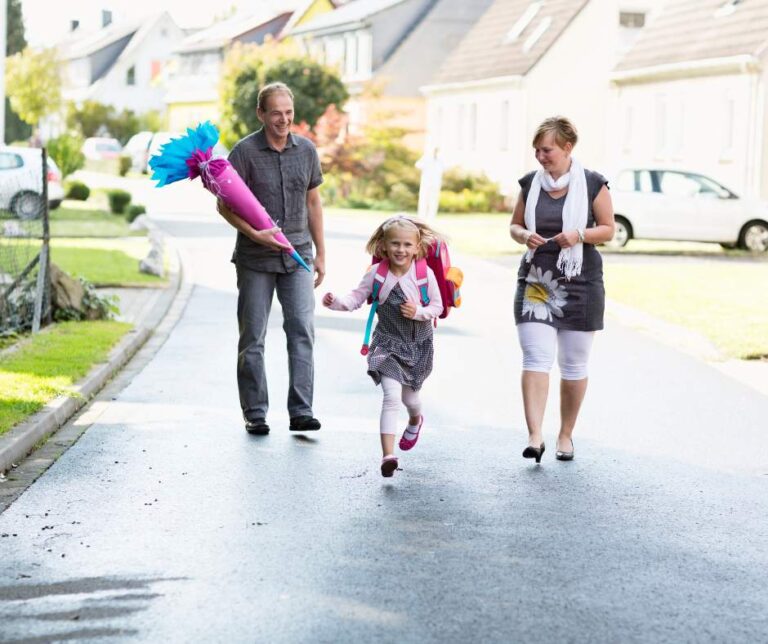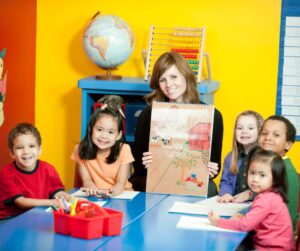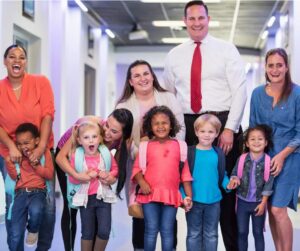
As your precious preschooler approaches kindergarten age, a whirlwind of emotions might swirl around you – excitement for their next chapter, mixed with a touch of nervousness about whether they’re truly prepared. Fear not, mama and papa bears! Here are 5 key Kindergarten Readiness Signs for Preschoolers that indicate your little one is blossoming and ready to thrive in the world of kindergarten
1. Eagerness to Learn and Explore:
A curious mind is a thriving mind, especially in the world of kindergarten! Look for signs that your child is naturally inquisitive and enjoys learning new things. Do they pepper you with questions about the world around them? Are they fascinated by books and stories? Do they readily participate in educational activities or games at home or preschool? This thirst for knowledge is a fantastic indicator that they’ll embrace the structured learning environment of kindergarten.
2. Following Instructions and Maintaining Focus

The most important thing is Observe how your child handles instructions at home. Kindergarten classrooms require a certain level of structure and the ability to follow directions. Can they complete simple tasks like putting away toys or getting dressed with minimal reminders? Do they tend to stay focused on activities for a reasonable amount of time, or do they get easily distracted? While some fidgeting is normal, a child who can generally follow directions and maintain focus for short periods is well on their way to kindergarten success.
3. Social Butterfly or Budding Buddy?

Kindergarten means forging friendships and navigating social interactions. See how your child interacts with other children. Do they readily engage in play with peers? Are they comfortable sharing toys and taking turns? Can they express their needs and emotions appropriately? Even if they’re a little shy initially, the ability to interact positively with others is a crucial skill for kindergarten.
4. Self-care Skills: A Step Towards Independence
As a parent we really need to train child for self care skills, which will empower them & boost their confidence in new environment. Kindergarten fosters a sense of independence in children. Observe your child’s ability to handle basic self-care tasks. Can they use the restroom independently (including wiping and washing hands)? Are they comfortable dressing themselves with minimal assistance? Do they manage snack time without needing constant reminders?
5. Emotional Regulation: Managing Big Feelings

Parents need to answer this Question to themselves first that Do a child communicate their needs and frustration with words instead of resorting to tantrums? Preschoolers are still learning to manage their emotions. However, a child who can express their feelings verbally and begin to regulate them in a healthy way is well-equipped for kindergarten. Can they calm themselves down after experiencing a disappointment? While meltdowns still happen, an increasing ability to manage emotions is a positive sign for kindergarten readiness. Parents need to express their own feelings to child to motivate children also to do so.
Remember, Every Child Blooms at Their Own Pace:
It’s important to remember that these are just general signs, and development happens at a unique pace for every child. If your child isn’t quite there yet in some areas, don’t fret! Preschool programs are designed to nurture these skills, and you can continue to support them at home through play, positive reinforcement, and open communication.
Additional Tips for Helping Your Child Smoothly Transition into Kindergarten
- Read together regularly: This fosters a love for learning and strengthens language skills. Children use to look forward for it if you follow particular time & place.
- Practice social interactions: Encourage playdates and visits to parks or playgrounds. Kids who visit playgrounds have positive sign for pre school readiness.
- Role-play routines: Practice putting away toys, dressing independently, and following multi-step instructions. This will help them to boost their confidence in different environment.
- Talk about emotions: Help your child identify and express their feelings in a healthy way. Parents need to start with themselves.
By celebrating their unique strengths and fostering these key Kindergarten Readiness Signs for Preschoolers, you can confidently guide your little one towards a successful and enriching kindergarten experience. Remember, kindergarten readiness is a journey, not a destination. Enjoy the precious moments as you watch your child blossom and prepare to embrace this exciting new chapter!
